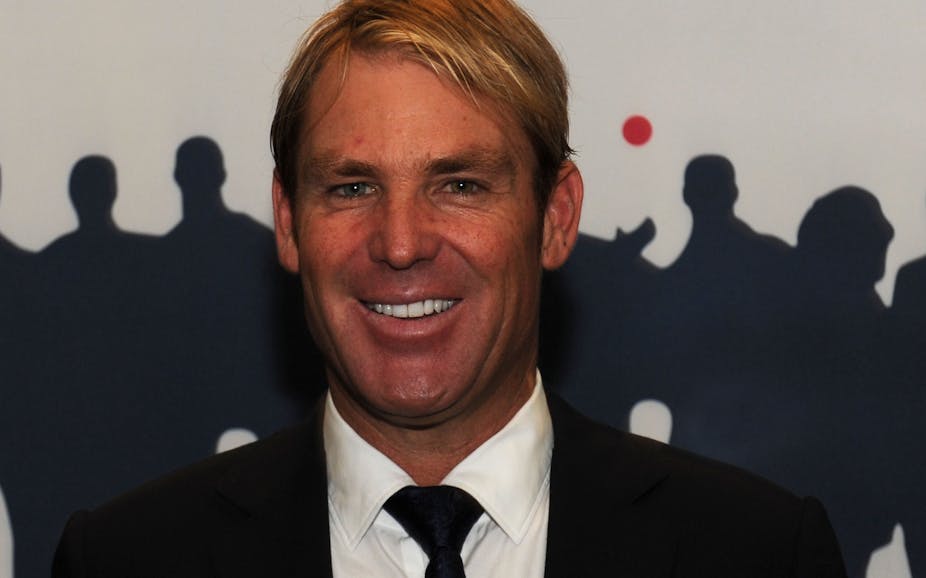Virginia Woolf – so Hermione Lee writes in Virginia Woolf, her 1997 biography of the celebrated writer – thought it immensely difficult to ever know another person.
Today the winner of the 2014 National Biography Award will be announced, chosen from a shortlist that includes literary efforts to get to know subjects who are already well-known, such as Gideon Haigh’s biography of Shane Warne, and those who are not, such as Janet Butler’s account of the life of an Australian nurse in Europe during the first world war.
It is one of the most difficult challenges in biographical writing to evoke a sense of the person behind the life – the self who experienced the triumphs and the disappointments, the joys and the heartaches. To be both engaging and edifying, biography has to be more than merely a collection of facts in some kind of narrative order. As Woolf herself recognised, it must be alive with personality.
Biographies of people we already know
This imperative always presents something of a test, but it is perhaps a particularly acute one for the biographer of someone well known, someone who has lived their life in the public eye.
Celebrity biography is a popular genre, and has been for as long as biography has been documented. Biographies of celebrities or famous figures remain good bets for publishers faced with an increasingly difficult publishing climate. In recent years, the New York Times bestseller lists have featured a number of biographies, including of John Wayne (Scott Eyman’s John Wayne: The Life and Legend), Bruce Springsteen (Bruce, by Peter Ames Carlin), and Steve Jobs (Walter Isaacson’s Steve Jobs).
Autobiographies and memoirs by celebrities and other prominent individuals – from sports stars to actors and musicians to politicians – seem even more popular. Written solo or with the help of a ghost-writer, they feature heavily on bestseller lists.
So far in 2014, several such works have reached the New York Times list: among them Hillary Rodham Clinton’s Hard Choices, Malala Yousafzai’s I Am Malala: The Girl Who Stood Up for Education and was Shot by the Taliban, KISS guitarist Paul Stanley’s Face the Music: A Life Exposed, and The Closer, by former Yankees pitcher Mariano Rivera, with Wayne Coffey.
We seem to have an insatiable appetite for famous personalities, and for the inside stories on the “private” lives of our public figures.
Too famous for a biography?
But the very thing that makes celebrity life stories popular – the visibility of the subject – can also make them difficult. For one thing, we as readers often feel we know something about the subject, and we may be disappointed by a biography that is more or less revealing, or more or less admiring, than we expect.
Perhaps more significantly, celebrities sometimes rely for their livelihoods on the creation and marketing of a particular image. It is a common journalistic frame to write a profile as a glimpse behind the glossy façade, a peek at the real person behind the glamorous image. But this is no easy task. Not only may a celebrity be supported by public relations and marketing experts, they can often exert a certain level of control over their public image. Honed by years of interviews, they are probably a skilled interviewee, able to present their story as they prefer it.
Writing an authorised biography, freely and fully supported by the subject, can ameliorate this difficulty. Access to personal documents like letters and diaries, or candid interviews, can help the biographer delve behind the media image. Such a relationship with the subject, though, may also create obligations which can limit what is said. And as Daniel Vuillermin observed in relation to Isaacson’s biography of Jobs, “there is a danger in relying too much on the subject, especially one as savvy as Jobs”.
The well-known dead
The problem is especially sharp if the subject is still alive, but it does not disappear if they have died. Janet Malcolm’s The Silent Woman: Sylvia Plath and Ted Hughes discusses the tense relationships between biographers of Plath and her estate, represented by Ted and Olwyn Hughes. Meanwhile, Mark McKenna (in An Eye for Eternity: The Life of Manning Clark) has reflected on the extraordinary experience of finding notes to a future biographer waiting in Clark’s voluminous papers.
In the 21st century, the challenge has a new flavour.
More and more people – via reality TV, blogs, or other mediums – can have their 15 minutes of fame. More and more people are inviting the public to witness their lives, as they are lived, narrating their own stories on social media sites like Facebook, Twitter, and Tumblr.
And more and more people have become aware of the importance of careful curation – avoiding that embarrassing picture, or that unguarded tweet, that can spell disaster. Yesteryear’s diaries and letters might have been written with an awareness of posterity, but today the idea of a “personal brand”, which must be built and protected, is pervasive.
Will these developments pose new difficulties for biographers in the future? Perhaps, but I think they are better understood as a new version of a very old challenge – that of navigating divergent accounts and sometimes careful self-crafting in the quest to convey the essence of another person.
The winner of the National Biography Award will be announced today. Details here.

